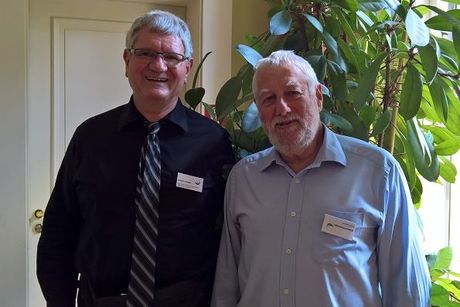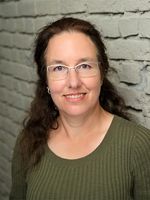Technological potential
On the first day, the participants examined the technological potential. Ortwin Renn (Scientific Director of IASS Potsdam) and Graham Hutchings (Cardiff Catalysis Institute & Royal Society) welcomed the guests. Robert Schlögl (Max Planck Society) pointed out the basics and challenges of CCU: "A secure energy supply cannot work without storable and transportable energy sources. In the future we want to produce such energy sources in a climate-friendly way. For this we need CCU technologies." The other initiators Alexander Cowan (University of Liverpool) and James Durrant (Imperial College London) presented research results. These show how the conversion of CO2 into carbonaceous products can become more efficient. Thomas Bruhn (IASS Potsdam) described the impact CCU technologies have on the environment - for example, when chemicals required for CO2 capture are released into the environment. Wiebke Lüke (thyssenkrupp) explained the commercial use of CO2 from an economic perspective. She stressed: "CO2 is a valuable raw material." In April, thyssenkrupp AG completed a pilot plant in which synthetic methanol is produced from CO2. The plant processes metallurgical gases from a steel mill. Mathew Davidson (University Bath) discussed the commercial potential of plastics production from CO2. Christoph Sievering (Covesto) gave an insight into how companies can switch their raw material base from fossil fuels to CO2. Paul Collier (Johnson Matthay) presented British CCU projects and the influence of the political framework conditions. In the UK, for example, the use of CCU on a large scale is part of the Clean Growth Strategy until 2030. Carbon dioxide is already being used commercially there for the production of gases and building materials.
Social and political perspectives
The social and political perspectives were the focus of the second day of the workshop. Gunnar Luderer (Potsdam Institute for Climate Impact Research PIK) explained how the use of CO2 can have a positive effect on the climate: "The reuse of CO2 from fossil raw materials can only be a first step in the development of a recycling economy. In order to become greenhouse gas neutral, the CO2 used must come from the air or from biomass, or be repeatedly circulated". Rosa Cuéllar-Franca (University of Manchester) explained how important it is to think CCU in terms of a life cycle. This made it easier to identify risks and potential at a glance at the entire process. To assess the value of CO2 as a raw material, Barbara Olfe-Kräutlein (IASS Potsdam) focused on social aspects: For example, the impact of CCU on the environment and public welfare, whether the consequences have been investigated transparently and extensively and how various interest groups assess CCU must still be answered.
Important building block for the future
Participants agreed that CCU will be a necessary building block for future energy systems and sustainable industrial production. Some saw the high energy demand as a disadvantage of CCU. Graham Hutchings concluded that direct use of electricity - for example in electric cars and heat pumps - is preferable to avoid CO2. However, there are many areas where this is not possible. There, CCU is the only way to become independent of natural gas and crude oil.



